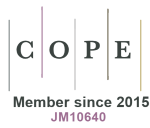Downloads
How to Cite
Hendrix, A., Ciccone, C., Gespach, C., Bracke, M., De Wever, O., & Westbroek, W. (2013). Rab27B-Mediated Metabolic Reprogramming Induces Secretome Acidification and Chemoresistance in Breast Cancer Cells. Journal of Circulating Biomarkers, 1(1). https://doi.org/10.33393/jcb.2013.2035
Issue
Section
Original research article
Statistics
- Abstract views - 768 times
- PDF downloads - 435 times
Sign up
banners150
Most popular articles in the last 30 days
-
250
-
244
-
229
-
182
-
152









